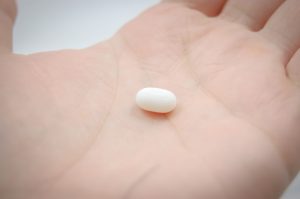Fenbendazole: Overview and Side Effects
What is Fenbendazole?
Fenbendazole is an antiparasitic medication primarily used to treat worms and parasites in animals, such as roundworms, hookworms, whipworms, and some tapeworms. It belongs to the benzimidazole class, which includes compounds like albendazole, parbendazole, mebendazole, and flubendazole. Check out Joe Tippens Protocol.
Research and Potential Uses
While fenbendazole has been studied extensively for its veterinary applications, research into its effects on humans is still in early stages. Some studies suggest that veterinary drugs like fenbendazole may have other applications, but findings remain preliminary, and more research is needed.
One study highlights that repurposing veterinary medications for human use can reduce the time and cost involved in developing new treatments. However, these findings are not yet conclusive for any human application.
Another study highlights that “repurposing veterinary drugs with promising results for human use can significantly reduce the time and cost required to develop new drugs.”

Fenbendazole Side Effects in Humans
Although research on fenbendazole’s effects on humans is limited, existing studies indicate that it is generally well-tolerated. Reported side effects are mild and rare, but further investigation is necessary.
According to a 2018 study, doses up to 500 mg per person showed no significant adverse effects, with single doses up to 2,000 mg also reportedly well-tolerated. However, these findings are based on limited data, and the overall safety of fenbendazole for human use has not been definitively established.
Another study also discussed the potential side effects of using fenbendazole in humans. “Based on limited human data it appears that doses up to 500 mg per person did not result in adverse effects,” the study states. “Moreover, single doses up to 2,000 mg per person were reported to cause no adverse effects.”

Fenbendazole Side Effects in Animals
Fenbendazole is safe to use in pets that are over six weeks in age. Although the medication is well tolerated by most animals, some potential mild side effects include:
- Loose stools or diarrhea
- Loss of appetite
- Salivation
- Vomiting
- Lethargy
Related Articles
- Joe Tippens Cancer Protocol | Laura’s Mercantile (laurasmercantile.com)
- What Kind Of Cancer Did Joe Tippens Have? | Laura’s Mercantile (laurasmercantile.com)
- Fenbendazole Cancer Treatment | Laura’s Mercantile (laurasmercantile.com)
- Is Fenbendazole Safe For Humans? | Laura’s Mercantile (laurasmercantile.com)
- Laura’s Homestead Alternatives | Mt. Folly | Initiative and Products (laurasmercantile.com)
Disclaimer:
The Joe Tippens Protocol is an anecdotal account of one individual’s experience with an unconventional health approach. This information is shared for educational and informational purposes only and should not be interpreted as an endorsement, recommendation, or guarantee of results. The safety and efficacy of the protocol, including its use of fenbendazole or any other components, have not been thoroughly evaluated or approved by the U.S. Food and Drug Administration (FDA) for the treatment of cancer or any other medical condition.
Additionally, CBD products are not approved by the FDA to diagnose, treat, cure, or prevent any disease. The FDA advises that all claims about CBD or any other supplements be substantiated by rigorous clinical studies and evidence. Consumers are urged to exercise caution when considering unconventional methods and to consult with a licensed healthcare professional before beginning any new treatment or supplement regimen.
Always rely on evidence-based medicine and the guidance of qualified medical experts when making decisions regarding your health.

